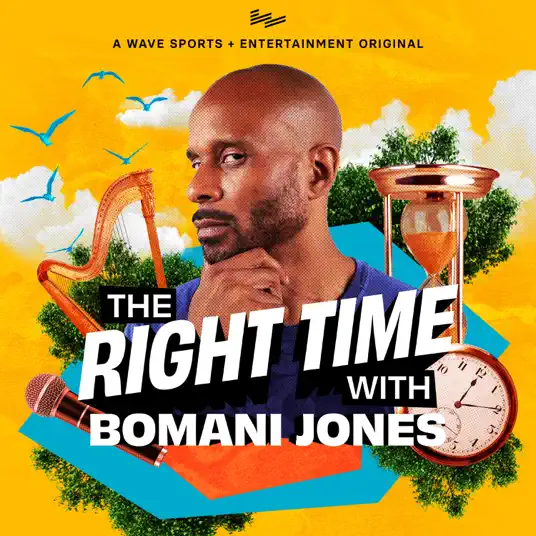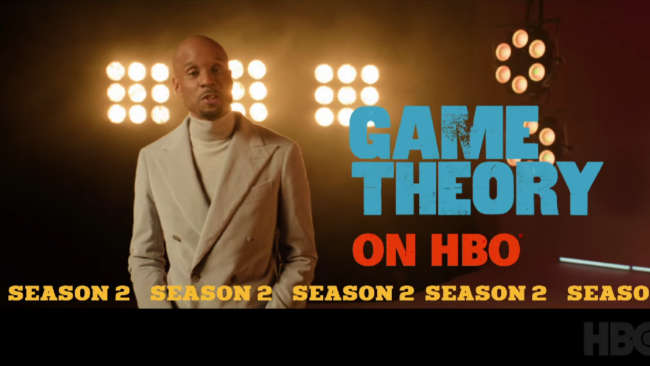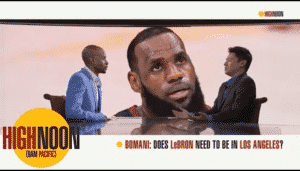I’ll be traveling later this week, so I wanna do an old school record today and try to get a list in tomorrow. Let’s see if i actually pull it off, ha?
I chose Biggie’s Life After Death because it generates a polarity of emotions from hip hop enthusiasts. All would admit that it’s a good record. Only a fool wouldn’t admit that it’s got some spectacular moments. But it’s polarizing because The Source deemed it to be a 5 mic classic when it dropped in ’97, probably the most controversial rating in the magazine’s history. Some would argue that giving Lil Kim’s The Naked Truth 5 mics was more controversial, but i wouldn’t. We all know that wasn’t no damn 5 mic album, and most of us know why it got that rating (it is a pretty good record, though it’s littered with biting and ghostwriting).
So almost ten years later, how does Life After Death hold up?
After listening to the record yesterday, I must say it holds up today like it held up in ’97–inconsistently.
The first disc is absolutely incredible. You’ll be hard pressed to find a better first three songs on any record than “Somebody’s Gotta Die,” “Hypnotize,” and “Kick in the Door.” It took a few years, but Biggie’s lyrics on “Fucking You Tonight” overcame the schmaltz of the beat and the R. Kelly feature. At the same time, I love that there’s a “something for the ladies” beat for a song totally void of romance (for another example of that, check Tip’s “Let’s Get Away”).
Tracks 6-8 don’t keep the momentum going as much as I’d prefer. “Last Day” is cool but not great, and it’s definitely a waste of getting a track from Havoc. “I Love the Dough” is a guaranteed skipper. Biggie and Jigga have great chemistry, but the beat’s no good. And as much as other people like it, I’m not a big fan of the bizarre rappin’ style on “What’s Beef.” But I must say that Biggie kills every track in that stretch. The problems there are to be blamed on the executive producer. More could have been done with each song. And if you didn’t know, the executive producer was the overrated Sean “Puffy” Combs.
But no need to fret…the disc closes with a BANG. After an interlude, we get “Mo Money, Mo Problems,” which was played every ten minutes in 1997, much to my delight. I’ve never gotten tired of that record, even though I don’t like how Puffy pimped the song as though it’s his. “Niggaz Bleed” is one of the best pieces of writing ever, regardless of the medium. ‘Twas so dope that Vibe actually explicated the poetry in an issue. Closing the disc is “I Got a Story to Tell,” which is absolute genius.
(Random–which Knick do you think Biggie was talking about? Me and my high school folks think it was John Starks.)
But see, then we get to the second disc. Ehhhhh.
“Notorious Thugs” was dope, even though the intro is too long. Then we get two snoozers–“Miss U” and “Another.” I guess they had to put Kim on the record, but keep that bullshit. “Going Back to Cali” is dope, but I don’t dig the New York-centricity of the record. If he wanted a West Coast song, he should have gotten a West Coast producer. Instead, he got Easy Mo Bee to do what a New York dude thinks a Cali song should sound like. No dig that do I.
The next track, “Ten Crack Commandments,” is absolute fire. If you wanna hear more about it, go listen to it. There’s nothing I can say that’ll do justice.
“Player Hater” is absolutely hilarious. One of the best fake singing joints ever.
Rest of hte record? Gimme “Long Kiss Goodnight” and “My Downfall.” Maybe “You’re Nobody Til Somebody Kills you.” Everything else is straight snooooooooze.
So how in the hell is this a 5 mic album? I have no idea. In fact, I’d not had the compulsion to sit and listen to the whole thing for years. I’m almost tempted to say it’s nto a classic. In fact, it’s not.
But again, that’s not Biggie’s fault. He put on one of the most incredible shows an emcee has ever dropped, and he did it for 24 tracks. But this is not a very well produced album, and that’s sad.
At the same time, you can’t argue with the results. They sold jillions of copies of this, so Puffy knew what he was doing. He crafted Biggie’s breakthrough to superstardom and gave Jigga the blueprint for “Vol. 2,” which showed rappers how to use one album to move all the way into suburbia.
But that could have been done while still making a spectacular album. This just happened to miss the mark.
The greatest what if in hip hop is, “what if Biggie had made a third album?” If he had, would it have been a return to the underground sound of his debut? Or would it have been more of this? And had it been more of this, would he still be held in legendary esteem? He killed the record, but I don’t think peopel would care if he came again with mediocre beats.
So that’s the record. Debate amongst yourselves. If I had to rate this one, I’d give it 4.25/5. The lyrics are amazing, but there’s still something missing.
4 thoughts on “Old School–Life After Death”
Leave a Comment
You must be logged in to post a comment.





There’s so many things I want to say about this album and this topic that I don’t even know where to begin. So, I’ll just start.
I think although this album was not an undeniable classic, it still deserves 5 mics and “classic” status. For one, I think that listening to cd’s is like watching movies – you have to understand the context in which it was created. There are some artists whose music is timeless – they don’t play into the current trends of the music genre (think about how wack Laffy Taffy will sound in 6 years) – they just consistently put out great music. I think Biggie was able to accomplish this.
Comparatively, at a time when the West Coast was dominating the music scene (rap-wise), Biggie held it down for the East Coast (and I’m from the West coast and I’m admitting this). And I think this album sold because as much as people don’t like to admit it, Puffy was good for Biggie and vice-versa (p.s. I don’t care what Puffy is now). I think this album was as much a lyrical exercise by Biggie as it was Puffy’s introduction to mainstream America and suburbs all over. Especially with cross-over joints like “Hypnotize” and “Mo Money, Mo Problems.” And who can forget those two videos? Rather, who can forget Puffy in those two videos?
Beyond Puffy playing the role of hype-man, the album was still great, for many reasons. First of all, I think it showed a wider musical dynamic from Biggie. If you like Biggie, you LOVE the first album, “Ready to Die,” and I think a lot of the time, fans love an album so much that they expect future albums to not only be as great, but sometimes, to be almost the same or similar. They want similar subject matter, similar production, similar verses, etc. I mean, wouldn’t most Biggie fans say they want another album “like” Ready To Die? What I think doesn’t get credited enough, is the ability of an artist to create different sounds, different moods and different music artistically.
Take a group like Outkast. No album EVER sounds the same, people want to hear more of their older stuff but I think they said it best (paraphrased from a source I can’t remember, maybe Vibe?) – they do new albums to create new music. They don’t want to put out a cd that sounded like the last one because then what would be the point? That was there answer to critics who wanted more of the “old” Outkast. And I dig that response. It’s still gotta be fun and almost experimental for the artist.
I think Biggie was just trying to do new things. And I think that for the most part, the album was great. Really great. And compared to 95% of rap albums, it’s far and away better. And he owned the mic. If there was thing about Biggie on that album, even though you might want to skip a track, you still want to hear what the man has to say – whether you like the production or not.
The funny thing about rap music is that the production can always be “better,” but sometimes you listen to the lyrics of a great artist and you think, “this can’t be ANY better.” This is one of those cd’s. From the creativity of “Ten Crack Commandments” to the appropriately-named “I Got A Story To Tell,” Biggie was more captivating then nearly all of his counterparts. I think he still is on this album, and no less than on Ready To Die, albeit perhaps with a different sound and feel to the album.
Also, I don’t think Ready To Die would have been as great without this album. This album just made fans of hip-hop realize in retrospect, how much of a hip-hop masterpiece his first cut was.
I would have hoped if he was around to make a third album, it would have been as different from his first two albums as possible, and just as strong lyrically.
Life After Death is a classic.
Big’s lyrics throughout the disc were superb…it’s just he had some lackluster production on some tracks..
and that’s why i felt Life After Death would’ve been better served as a single disc instead of two.
Shid…”Nasty Boy” on the second disc is overrated..
Alright, I never considered Sex Packets old school, but that can slide. But Life After Death? I hate to nitpick about semantics, but damn.
A little background: When Life After Death dropped, I had grown tired of Bad Boy. I was a college hip hop head with a growing political consciousness and back then, Big represented the evil “jiggy” takeover that destroyed popular rap. The fact that he, like Jay and Nas, was so talented and had produced a stellar debut made his “selling out” all the more treacherous to me.
I listened to the album, skipped the filler, appreciated the few gems, Overall, I thought the whole thing was forgettable, mainly due to the inconsistent production and the strained pop attempts (To this day I hate “Hypnotize” and “Fuckin You” because Biggie was good enough to make pop songs without forcing formulaic ones), and I lost a lot of respect for the Source for awarding it 5 mics, though I understand that they did it because he had died and he was the reigning King of NY.
I came back to the album with fresh ears a few years ago, after I had grown out of the “’conscious’” hip hop is waging a righteous war” phase. Only then did I fully appreciate the brilliance of Big’s rhyming on this album. You rightly praise his lyrics, but stylistically, he was insane, but not in a flashy Pharoahe Monch way (which I happen to dig). The internal rhymes, the sharp vocal turns, Big just shredded beats and yet it seemed so effortless.
Double albums in any genre are almost never justified. Rap double albums in particular are especially unnecessary, usually bloated with filler (Kast, Jay Z, 2 pac). The lone exception is Wu Tang Forever, and even though I dig that album, even it should have been a single album comprised of the best 15 tracks from the two discs. Life After Death is no different. I agree that it would have been a damn good album of a dozen or so of the best songs. Long story short: Life After Death is not a classic–not even close. I think we throw around that word too lightly. I personally prefer the word “classic” to be reserved for works that are close to perfect, not just ones that contain some flashes of brilliance or are better than the rest of the crap out.
Had Big lived, he would bear the burden that Jay did before he “retired”: he would still be the undisputed King of NY (and Jay would never have ascended to the same degree; he only did so in the vacuum left by Big’s death), but would catch holy hell from “purists” for that same reason. I can’t imagine that the albums after Life After Death would be classics either, not because he would have fallen off, but because MP3 technology, sampling laws, corporate consolidation, and other factors have interacted to lower the standards of rap fans, which necessarily leads to weaker albums.
Definitely not a classic in my opinion, but there are, as you pointed out, some true moments of brilliance on this record (Ten Crack Commandments gives me chills). I’d take Ready to Die over this joint any day of the week, but again, that’s just me. What makes me crazy is this whole notion of, to paraphrase Rah Digga, “checking for the lyrics and not checking for the tracks”. Straight bullshit. If you want to get on the mic and spit the hot shit, then you better damn well be sure that the track, whether from a million dollar producer, or your mans and ’em in the crib, is up to snuff. That’s what makes a good song.
For the record, I wouldn’t have wanted another album like Ready to Die, just like I don’t want Nas to do Illmatic 2.0. I love it when artists challenge themselves, push their boundaries, get out of their comfort zones, and their own way, etc., just make it good.